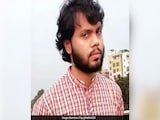(Ashok Malik is a columnist and writer living in Delhi.)
There's a lot riding on the upcoming Delhi assembly election, voting for which is expected in late January or early February. Delhi is a small state, but by virtue of being just so urbanised and the seat of the national capital as well as the national media, it gets disproportionate attention. Correctly or incorrectly, this tends to make the Delhi assembly election a reckoner of the urban mood, at least in north India.
State elections are rarely referenda on the union government. Delhi is a bit of an exception to this. It is the one state where perceptions about the union government do matter, at least to some degree. In the winter of 2013, the unpopularity of the Manmohan Singh government did reflect in the defeat of the Sheila Dikshit government, though it is a fair bet that the Dikshit government would have lost anyway.
Much has changed since that previous assembly election, where the BJP finished the single-largest party but could not get a majority, and the Aam Aadmi Party, by winning 28 seats in a house of 70, performed stunningly. In that election, the Congress had been crippled. Of its traditional voters, it had retained only Muslims. Five of the eight seats the party won were in minority-dominated areas. It had lost the middle classes to the BJP and AAP, and had to share the urban poor with AAP.
It was only in the outer periphery of Delhi, relatively more rural, and with stronger identity and caste politics, that the AAP onslaught was checked by the national parties.
In the past year, the middle classes have migrated to the BJP and Narendra Modi. They are tired and wary of Arvind Kejriwal's theatrical politics. His decision to resign as Chief Minister in just 49 days - his minority government had been supported by the Congress - continues to give him the image of a non-serious politician. However, the defeatism of the Congress and the fact that AAP is the strongest non-BJP force in the state means Muslims and sections of the urban underclass that have hitherto voted for the Congress will gravitate towards AAP.
In the past 12 months, AAP has become a less middle-of-the-road and more ideological and even denominational party. However, this does not mean it is electorally weak.
In fact, it may have a smaller but more resolute voter constituency. It is also desperate and needs to win Delhi to stay alive in national politics.
Admittedly, AAP will run into a few problems this year. The novelty factor and the freshness of a movement that had only recently crystallised into a political party are no longer there. The anger against the Congress governments (nationally and in Delhi state) has been spent. There is no similar hostility against the Modi government that can be exploited.
Finally, Kejriwal will need to fight for even his own seat. In 2013, he had won New Delhi seat - representing the super-urban inner core of the metropolis - simply by asking for the incumbent MLA, then Chief Minister Dikshit, to be punished.
Kejriwal's campaign had been managed by volunteers and a heavy social media presence, which was very effective in upper middle class New Delhi. This left Kejriwal free to seek votes for other candidates, elsewhere. This time, he will go back as the MLA seeking to retain his turf. It won't be as easy.
The BJP is not without its worries. All three municipal corporations in Delhi are run by the party. Corruption and under-performance are huge issues. Also, the BJP does not have a ready-made chief ministerial candidate. Its face in 2013, Harsh Vardhan, is now India's Health Minister and unlikely to come back to state politics.
The party will depend heavily on the pan-Indian urban goodwill towards Modi and the momentum of victories in Haryana and Maharashtra. It will hope the "let's strengthen Modi and bet on his party" sentiment will continue. It will also need to be that much more imaginative in choosing younger and credible candidates, and not inheritors and hand-me-downs. If the BJP manages to do all this, it may well be through.
Disclaimer: The opinions expressed within this article are the personal opinions of the author. NDTV is not responsible for the accuracy, completeness, suitability, or validity of any information on this article. All information is provided on an as-is basis. The information, facts or opinions appearing in the article do not reflect the views of NDTV and NDTV does not assume any responsibility or liability for the same.
This Article is From Nov 05, 2014
Kejriwal vs Modi, This Time in Delhi
Advertisement
Ashok Malik
- Opinion,
-
Updated:Nov 05, 2014 17:15 pm IST
Topics mentioned in this article















